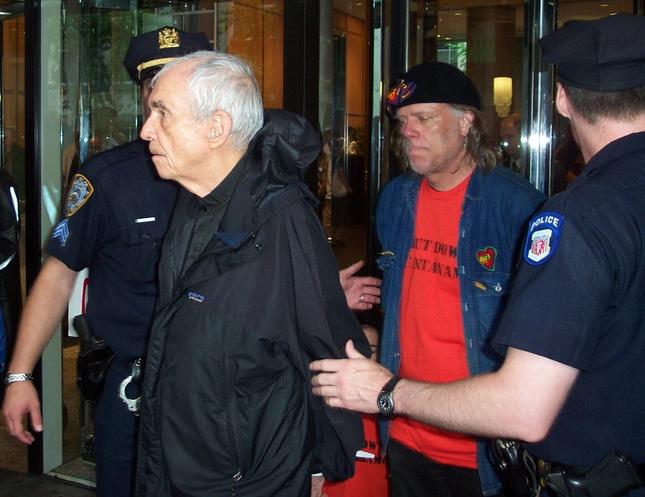Rev. Daniel Berrigan, S.J. (1921-2016)
By • May 20, 2016 0 1666

In an interview for the 2009 PBS documentary “William Kunstler: Disturbing the Universe,” Rev. Daniel Berrigan, S.J., was asked, “Do you think we can change the world?”
He replied, “Well, I think we can live as though we are changed, you know, and that’s a start.”
Berrigan lived his life by that sentiment, becoming famous for his intense activism and wartime protests. The Jesuit priest, teacher, writer and professor died April 30, age 94, at the Jesuit infirmary at Fordham University in the Bronx.
He grew up near Syracuse, New York, entering the Jesuit seminary after high school. In 1968, he and his brother, Father Philip Berrigan, joined seven others in taking files from a draft board office in Catonsville, Maryland, and burning them in the parking lot with homemade napalm. He and the other Vietnam War protestors, who became known as the Catonsville Nine, were found guilty in federal court and sentenced to prison, but Berrigan managed to hide from the FBI for four months before serving his time.
That act was Berrigan’s most famous, but was by no means his only such protest. He broke into a General Electric plant — again with his brother — and hammered on the nuclear weapons. He continued to speak against war and violence throughout his life, in his later years turning attention to conflicts in Afghanistan and Iraq, among other issues.
Berrigan also made use of the written word, publishing more than fifty books as well as numerous poems.
His name will forever be connected to Dorothy Day and Thomas Merton, two famous faces of Catholic spirituality and social justice who were mentioned in Pope Francis’s speech in Washington, D.C., last year. Berrigan’s relationships with both greatly influenced his active stance in the anti-war movement.
In the PBS interview, reflecting on all his years as a protestor, Berrigan said that he did not see much progress in peace movements. But he was not discouraged.
“The value of the work is vindicating your own humanity and that of your friends, and living as though the truth were true. There’s a mood that can set in easily that would say, because I can’t do a big thing, I’m gonna do nothing. But, I mean, I love the Buddhist teaching that the good is to be done because it is good, not because it goes somewhere. I think that’s powerful, and I think, too, that if it’s done for the right reason, it will go somewhere.”

